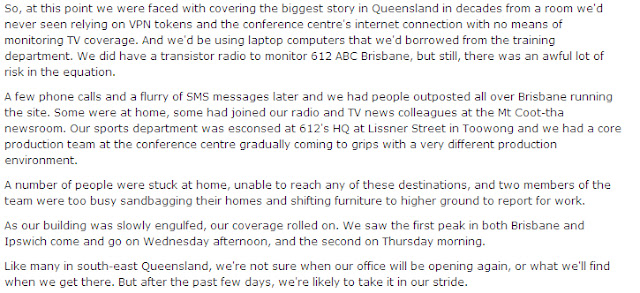Journalists, big brother is watching you!(Or maybe just your boss.) Everyone whose tweeted a twitter message or perused a twitter bio is familiar with the phrase, “These are my views and do not represent the views of my employer.” It’s a little but very important line on the social networking profiles of those who use twitter to network and advertise their work.
Obviously the idea is that those viewing the professional’s tweets will never be able to hold their work place accountable for them. And fair enough, one person cannot and should not personally represent their company based on their tweets. However, no matter how many disclaimers are added to a page, the world is watching.
Journalists posting online need to think before they tweet. Columnist Catherine Deveny found herself in hot water after tweeting messages many thought inappropriate at the 2010 Logies. “I do so hope Bindi Irwin gets laid” she said of the then 11 year old. She also targeted comedian Rove, saying, “"Rove and Tasma look so cute ... hope she doesn't die, too," in a reference to his first wife dying of cancer. The tweets caused public outrage, with many disgusted by Deveny’s words. The journalist defended herself on the basis of being a comedian, whose messages where taken out of context but her employer, Melbourne newspaper, The Ager, deemed her tweets inappropriate and fired her.
While it may be a simple matter of thinking before you tweet, journalists can be caught out in other ways online. It’s widely accepted that you should not speak badly of your employer or colleagues online, or you risk being sacked. Most workplaces have a social media policy but sometimes a hot headed worker, with a keyboard at his fingertips, is in no state to follow rules.
Foreign Correspondent and freelance journalist, Rob Crilly, last week took to twitter, angry over edits made to his work.
Crilly than tweeted that he will probably be sacked and later deleted all tweets. But it was too late, his comments had reached over 2million viewers and details of his rant made their way into major media reports all over the globe.
Journalists need to be constantly vigilant about the information they tweet. Posts can be deleted but rarely before a screenshot can be taken.
















